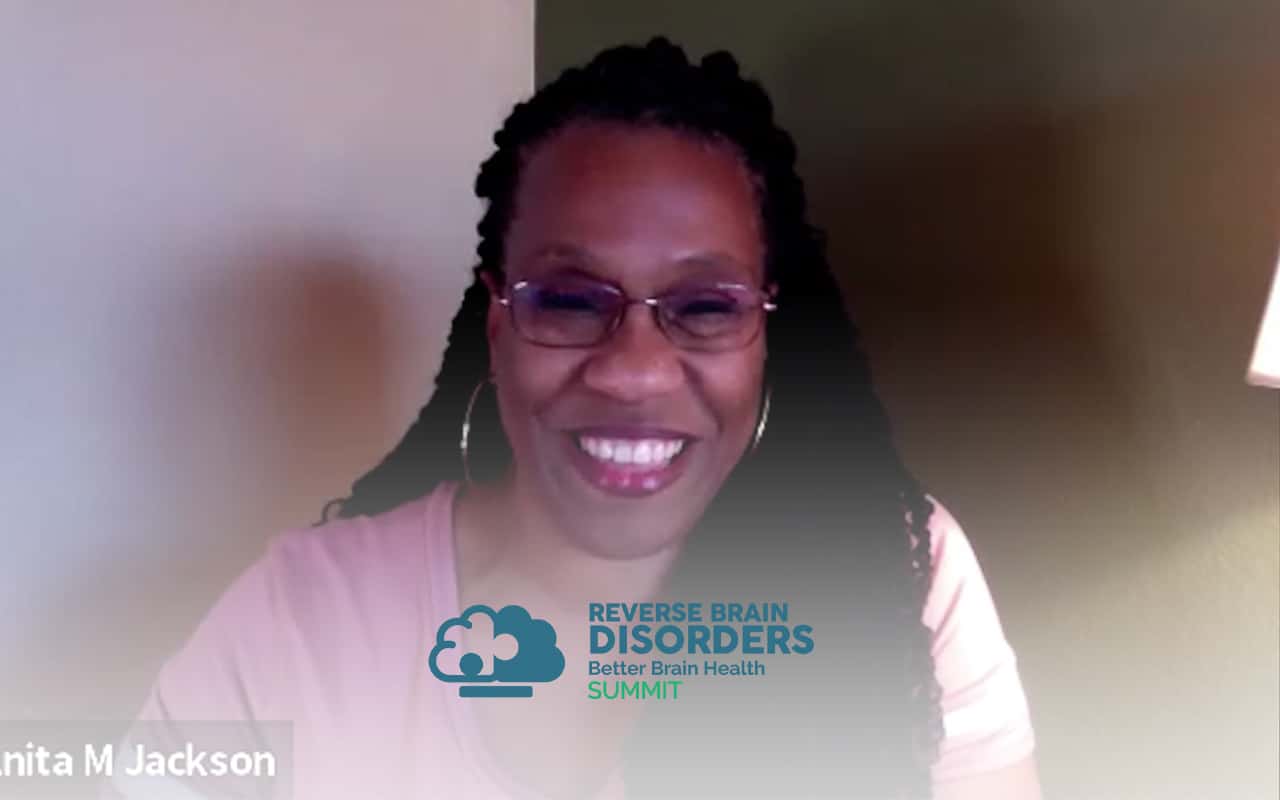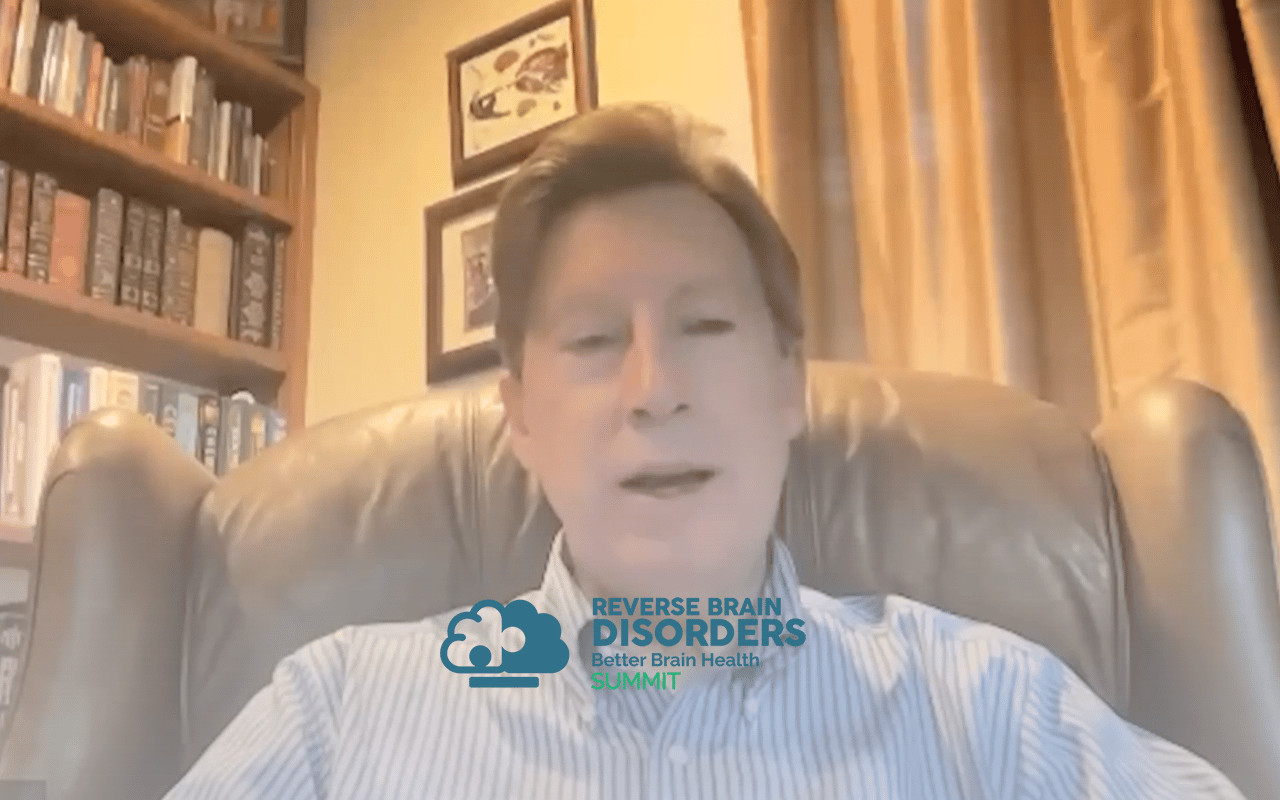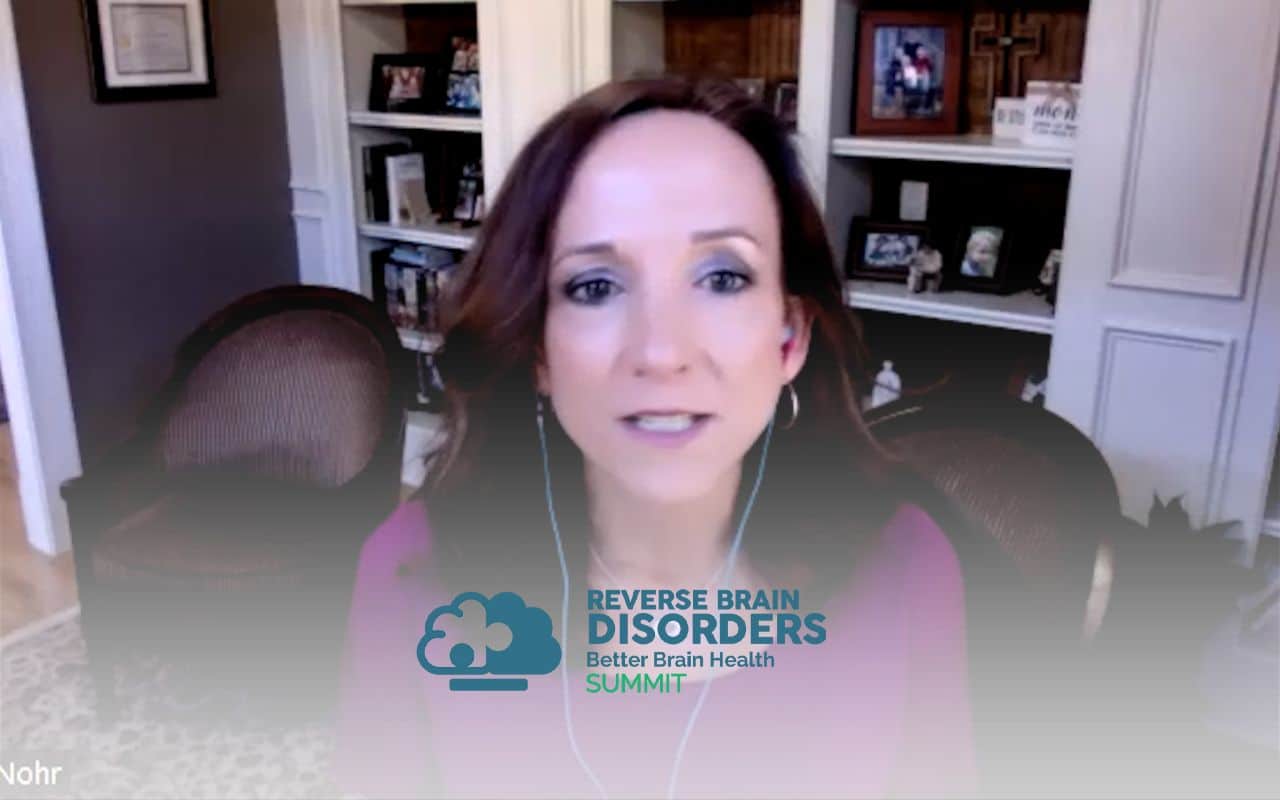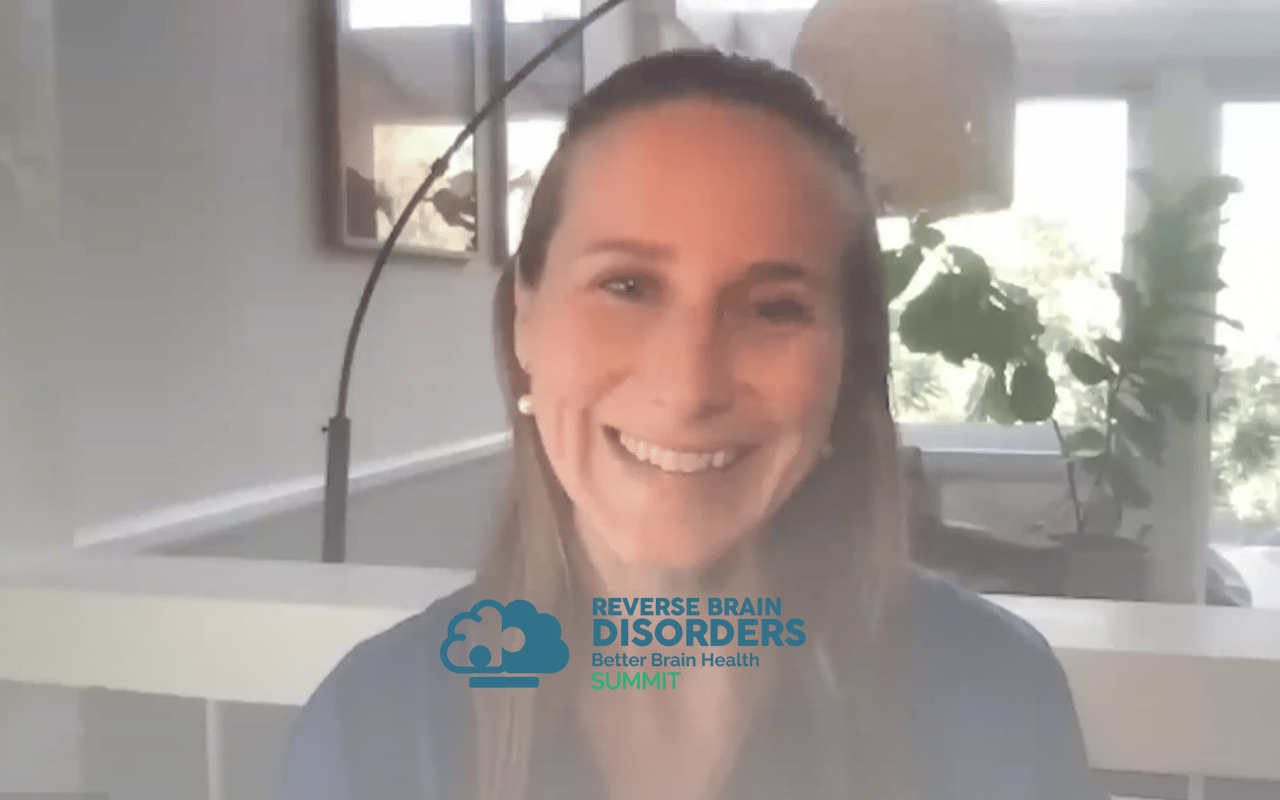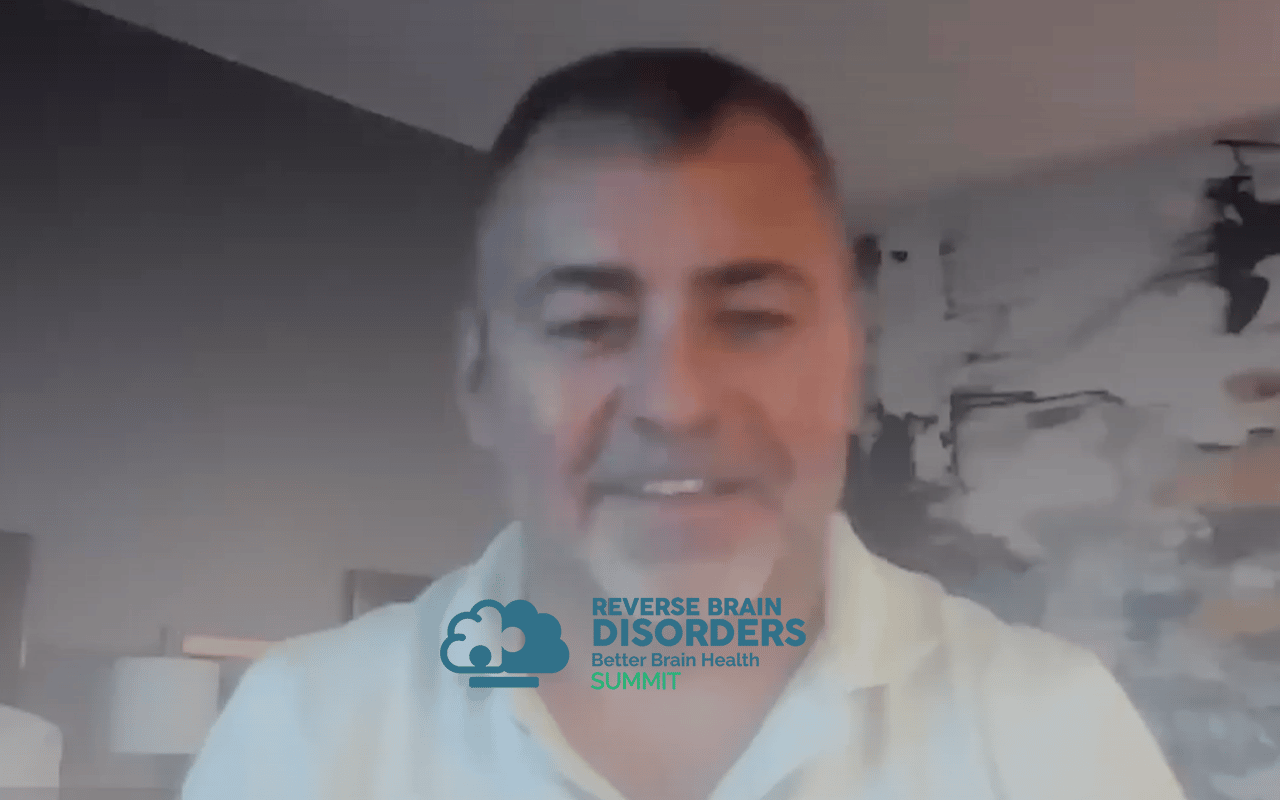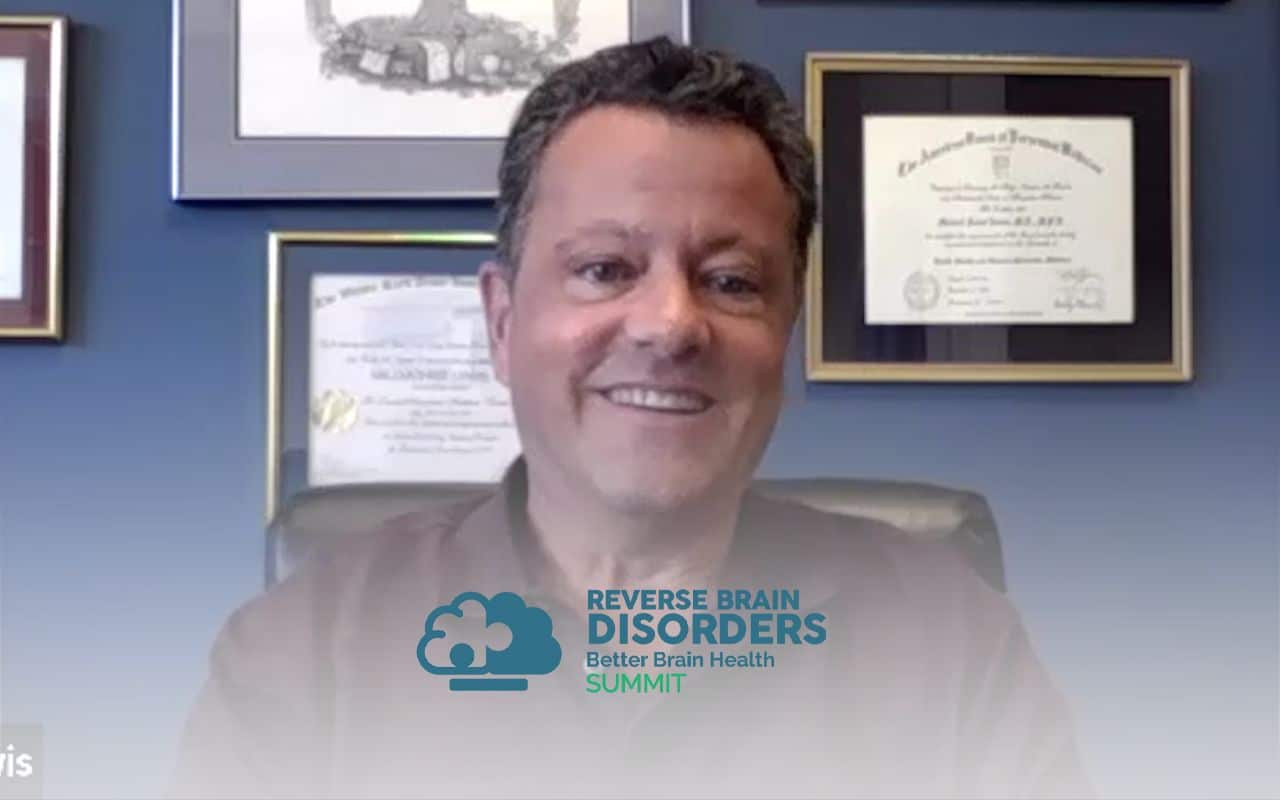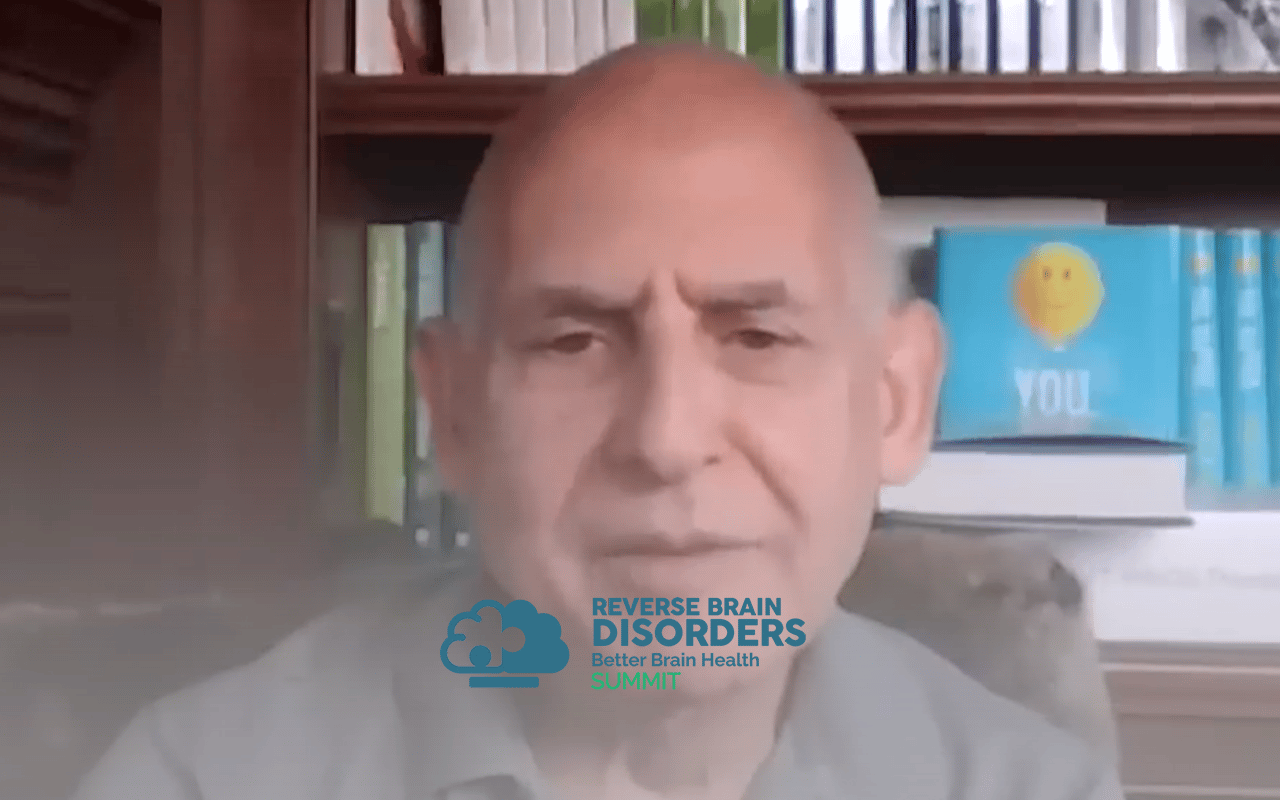Join the discussion below
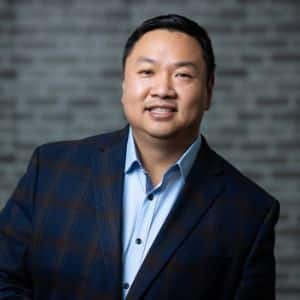
Dr. Ruan is the Founder and CEO of Texas Center for Lifestyle Medicine. He devotes his career in practicing and building systems that allow for efficient delivery of healthcare. He is a board certified internal medicine physician but also have advised with companies to improve their workflow, company culture, marketing,... Read More
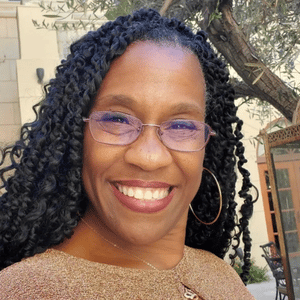
Dr. Anita M. Jackson is the founder/CEO of Power HER Success Alliance and AMJ Productions and Publications. She is fast becoming a sought after feminine transformational mentor, speaker, leader, and success coach within the feminine empowerment movement. She has an unquenchable passion to lead a movement of women to a... Read More
- How the Power of the Woman’s Brain Creates Health and Wealth
- Understanding how limiting beliefs unbalance your life
- Why caregivers tend to feel more burnout and what to do about it
Cheng Ruan, MD
You know, a woman’s brain has different challenges than a man’s brain, and because there’s hormonal differences, chromosomal differences, genetic differences and there’s not enough study that’s really done on how women’s brain work. So today I’m gonna talk to Dr. Anita Jackson and she’s the founder and CEO of Power Her Success Alliance and she is becoming really sought after feminine transformational speaker and mentor and leader and success coach with the feminine empowerment movement. She’s got an unquenchable passion to lead a movement of women to a higher level of being and doing that literally creates a tipping point of healing for others worldwide. We’re going to be talking about elements of brain health that really challenge what we know about a woman’s health, want to talk about how a woman’s brain can naturally get in the way when it comes to making and building and receiving wealth and health and money, and what are the focus is that the woman’s brains naturally governed and motivated by. So I’m not an expert at this, which is why I’m super happy to get Dr. Jackson onto the forum. Welcome to the summit. So happy to have you on,
Dr. Anita Jackson
I’m so honored to be here, thank you so much for welcoming me to be a part of this conversation with you and your audience.
Cheng Ruan, MD
You know, I have three daughters, my wife’s an O. B. G.Y N. Right? And so I live with my mother, her mother, so we have a lot of women in the house.
Dr. Anita Jackson
A house of women. I love it.
Cheng Ruan, MD
I’m basically I have to be a feminist, there’s no other way, you know? And the topic of a female empowerment is so huge like in our household and then with my girls being a girl Scouts and doing the leadership stuff and and me speaking for the troops, it’s just really rewarding thing as a father to go through, right? But I am in no position to talk about women’s empowerment because I just don’t know I can see it, but I don’t know, I’m so happy to have you on now. You have a heck of a history. So I know I’ll give you a little bit of an introduction in your bio. How did you get into this? What’s your what’s your history?
Dr. Anita Jackson
It really is an interesting story. So I started off as a secretary working at Cal state Pomona University and one of my professors, a male professor, came up and said Anita, I think you’re so much smarter than just being a secretary, why don’t you go get your degree? And of course I’m like why would I want to do that? That really was my original thought, like I don’t know why I would want to do that. And then he said you can get your degree for free. And of course that sparked my attention like really? And that’s really how it all started. I started to go to school while I was working and started to find out that the classes that were being presented some of my Bachelor’s in liberal studies, I really enjoyed that. I felt like I was learning something that I had never been exposed to before. And then from there I got into my masters which was originally in the ministry. So I have a background in ministry and it was in that program that I started to hear a lot about psychology. I was very, very lucky to have.
I guess you would say ministers who were also psychologists who were telling me about the spirit and the soul and the brain and the mind and that really fascinated me. And the next thing, you know, I’m on this new journey of, you know, walking down this academic career of becoming a marriage and family therapist and then becoming an organization psychologist and then now working as a business coach, as a publisher, doing all the things that I do because I am fascinated by human development. I am absolutely fascinated with why people do what they do, how trauma affects somebody when I at the core, I believe all of us were designed to live life fully and abundantly. So it’s been an amazing journey to, to become the person I believe I’m supposed to be and then be a part of everyone else’s journey and their evolution and their development, especially if they’ve gone through something difficult. I’m just fascinated with and I’ll probably continue to be a learner. I’m even thinking of going back to school because I’m now fascinated with neuroscience or neuropsychology. So I’m just a lifelong learner.
Cheng Ruan, MD
Yeah, yeah. So I mean you kind of fit right into the brain health summit here, but there’s a big leap from going into like family therapy and organizational psychology into writing books and magazines, right? Being on tv. Right?
Dr. Anita Jackson
Actually it’s actually it’s actually not. So I want those individuals who doesn’t like to follow the crowd. So when I was in school, all my friends at that time wanted to be psychologist. So I followed with, once we got in, I realized there were other opportunities rather than clinical psychology and that’s when I decided I want to go a different way. So what got me into becoming a publisher and becoming a seems like a producer. I got laid off from state pure and simple and sometimes you think this is not what you thought or planned for your life, but yet God’s spirit said, I have another plan for you. There’s more that I want you to do with what you’ve learned in this arena over here. So we’re gonna change directions for your life. And that’s what happened. I got laid off. Couldn’t, I’ve always been, it’s always been easy for me to find a job to be employed, but at that time like there was nothing available, I was overly qualified and I just felt myself feeling like it wasn’t what I wanted to do anymore after having done it for at that time with 27 years.
And I said, okay then what else can I do? What’s available to me? And I had gotten invited to be an author or co author actually in an anthology, Bold is Beautiful. And so I wrote my chapter on I Am Enough and that opened the door. I love the process, it was absolutely fantastic. And then I did my own book, hated the process working with the different publisher and just decided, well that’s all it takes to become a publisher. I could do this myself and that’s really my personality on a lot of stuff, if that’s all it takes. So I can do this two step into becoming a publisher. And the next thing, you know, I found out that I love anything that’s creative, I love anything that’s gonna help someone get their message out to the world that’s inspiring, that’s educational, that’s going to heal the body, the soul, the spirit. So my whole premise is about that. How do we help somebody get to a place of wholeness, returning to the fullness of who God created them to be and books is one of the ways that I can do it.
Cheng Ruan, MD
That’s amazing. And not your new thing is your new magazine is power. Her success, right?
Dr. Anita Jackson
Yes. God willing, that’s coming out in January. There’s not a lot of little shifts and upsets and you know, doing a magazine, I’ve done several magazines. And so I love that as well. It takes a lot of thought. It takes a lot of the right team to kind of process this through. But it was this whole entire pandemic really brought forward for me how many women were struggling. They were struggling because they didn’t have the support. They hadn’t really planned the way they wanted to plan. So many of the women that I know are single. So they didn’t have the resources and so the world turned upside down and they were losing their sense of self. And so that’s what dropped into my heart because power, her success was originally a coaching a six week protein program on what does it mean for a woman to connect to her power. And that’s when I realized maybe this is bigger than just a program. I had an opportunity to become a corporate trainer for another company. And in that conversation started to connect to executive women of major corporations and they were having the same kind of challenges maybe even more so. And then again, in a new direction of my life changed and now I’m stepping into this.
Cheng Ruan, MD
You know, this prompts me to ask you something that was really going to ask you. And so, you know, you’ve had decades of experience just going over the mindset of, of women and people in general, right? Whenever you know, I hear something called, I am enough and you know, in our, in our practice that takes a different lifestyle medicine, we have people repeat the words I am enough and there’s immediate tears just by them uttering that word. Right? Can you go into the psychology of why that actually happens even in these very high powered women who are doing a lot of amazing things?
Dr. Anita Jackson
You know, this could be a show all by itself, just the topic alone. I am enough because there’s so many nuances to it. And it actually that idea of I’m gonna started when I was working as a counselor at a university and noticed that college women were struggling with it. And then of course, within my private practice, I noticed that successful women, we’re dealing with it too. So the psychology is you really think about it. So many of us want to have someone see us, hear us, value us and tell us that we’re worthy and when we don’t have that experience. And unfortunately a lot of women have not had that experience repeatedly in their life, whether it’s because of mom and dad splitting, whether it’s because there’s been some sort of abuse in their life, which is where my expertise lies, is in that area of trauma and sexual abuse. If we’re not having that said to us on a regular basis, especially during the time of our development. We end up internalizing that something’s wrong with me. I’m not pretty, I’m not smart enough. I’m not thin enough. We can have the strangest kinds of thoughts and feelings around. I’m not enough. And what can happen particularly to women who are very smart or working at the executive level. We tend to push ourselves even harder. I know that’s my trap, we work harder. We almost fall more into our masculine energy and we’re trying to make things happen so that somebody, we may not even consciously know that we’re doing this, but at some unconscious level, we’re trying to get someone to validate us to see us to tell us that we’re good enough that we’re worthy Instead of actually coming to this place of integration, coming to this place of embodiment that at this point in my life at 56 years of age, if I can’t say that to myself. no matter who else says it on the outside in my life and in my world, I’m probably still not gonna receive it. So I need to make this decision. That is my favorite word, decision. And it means to reach a definite conclusion somewhere along our lifeline, we have to make a decision that I am enough. And then there, I think there are eight little steps that you go through to kind of make that happen in the first one is being aware that you kind of giving your power away when you’re not owning. I’m enough to myself to yourself. Does that make sense?
Cheng Ruan, MD
Yeah, absolutely. This reminds me of, yeah, this reminds me of caregiver stress syndrome and a lot of people. Yeah, A lot of people listening to on the summit is are there taking care of people with brain health issues, mental health issues, mental breakdowns, breakdowns. So they’re around this sort of this energy and, and because they’re constantly providing the care sometimes for decades, right? They kind of get lost into the thing. And let me tell you the story. Very recently, I was looking and I do brain maps in my office and, and whenever I map someone’s brain, I already know I’m gonna ask about traumas because we can look at the brain frequency energy, right? And so, and this person that just happens to have her brain map before, I actually met her, my other staff met her order the brain map. So I’m going in there and this is a very high power woman, taking care of everyone, everyone. Okay. And she thinks she’s taking care of herself to write that right. And so we sit down and even though though there’s nothing physically wrong with the brain per se, I can see that there’s so many like poor sleep markers and hypervigilant markers and stuff like that and there’s this very specific pattern that I see on the brain map on, on the imaging that I’m like, hey, you know what? Let’s talk about traumas and, you know, and the way I bring it out is the fact that I’m seeing something here.
Let’s, let’s see if we can tease some of this out and she’s like, well no, I haven’t gone through anything traumatic, you know, everything’s been pretty good. I’ve had a good job. I’m pretty, wealthy, you know, pretty successful. I haven’t done anything. And then, and then I asked her, is that, you know what if you were to summarize your life in like one sentence in the way that you feel, what would it be? She’s like, I’m always in demand and she smile and then her smile stopped, you know, menopause. So you’re always living in the life of, of demand. It’s like, do you ever feel like you’re judged? She’s like, my life is, is judgment like external judgment and I’m like, okay, well, you know, I’m not gonna call that a trauma, but I’m gonna call that, that there’s, there’s something maybe not comfortable about this because I can see that there’s, there’s patterns in your brain that’s creating this. And so we kind of discovered that what she didn’t really perceive to be traumatic. There’s actually several events that she completely forgot about after the 20 minute conversation in her life that was quite traumatic and I was very surprised she forgot about it. But I feel like there’s a lot of women that are like this because I talked to them. So tell me sort of the psychology behind all that.
Dr. Anita Jackson
You know, it’s fascinating that you said this because I actually had the same conversation with two of my close friends this week. I brought up the same kind of concept of with those of us who have been brought up in an environment that has directly and indirectly convinced us that we had to be in service to someone else. We may not even recognize that there has been trauma that we’ve allowed ourselves to hurt ourselves by putting ourselves last on the list. So when some, when a woman has become very successful, she has gotten so used to quote unquote, using her words beyond demand for everyone else. Not realizing because that pattern got developed that the rewards of that got developed. The behavior of that now is solidified.
That she doesn’t even recognize that she’s lost her true sense of self, her true desires, her true motivations of how she wants to live her life for her because her life is in demand for somebody else. And we don’t recognize especially those of us who are strong that that’s trauma because we are strong because we are resilient because we are hypervigilant. Our brains may not even allow us to consider that that’s an issue because we’re constantly moving into the next issue. We never have the space, don’t pause. Exactly, there’s no space to just go, okay, what just happened? Can I release it? And if I did something great, can I celebrate it? That’s the other thing. If we’re thinking about women don’t celebrate their own successes, they don’t give themselves credit for what they’ve accomplished because it’s never again good enough.
They haven’t even tapped into what’s preventing me from really owning my work and what’s making me constantly sacrifice myself for the good of somebody else and not my own good that happens. I can’t tell you how often I hear that I heard almost every single day, whether it’s directly being said or indirectly being said somehow, we’ve gotten convinced and that this is how we have to live our life. And this is the only way we’ll have value, the new challenge. And I think what C0V!D brought forward or the pandemic, I’ll say it that way brought forward was there’s gotta be a new way of being and living and doing. And if I don’t change things now, I think everybody’s dealing with PTSD, whether they know it or not, post traumatic stress disorder, it’s operating in their life. They’re not living at the highest level. I think we’re still all on hold, waiting for something else to happen and that’s going to upset your whole entire system, whether you’re conscious of it or not. And then the problem maybe because we’ve been in it for so long, it’s now becoming an unhealthy norm? And so for women who have already been in that this is just escalated it to the next level, it’s just a lot higher until someone comes in and says, no, this, honey, this isn’t healthy. This isn’t good for you spiritually energetically mentally or it’s not good for your relationship, it’s not good for your money, it’s just not good for you. So we just have to have this conversation over and over again to give very successful powerful women permission to slow down to take care of herself to make herself a priority.
Cheng Ruan, MD
I assume this is an ongoing process, not like, you know, one day, like poof, you’re all of a sudden fish takes a lot of discovery, right? And me working with a lot of like Alzheimer’s patients and their families, you know, that, that is, I’m always trying to look at the dynamic like who’s the character over here? You are, right? Or maybe there’s two caregivers, they’re fighting over their family because they both have sort of this protection mode that’s on in the claws come out, right? And that actually sometimes worsen the memory loss for the patient because the patients are seeing, you know, maybe their two daughters fighting or two sons fighting or whoever fighting cousin, whatever.
And the patient actually feels a tremendous amount of guilt and they don’t want to remember things and that perceived Alzheimer’s becomes like depression, which was called pseudo dementia and people are saying, oh, you know, this family is like going downhill is because the patient is actually witnessing relationship conflicts that are there, right? And if it’s not something I point out, you know, I feel like I’m doing a patient in the service, right? And so many times I have to like start labeling things here and there and say, hey, you know, let me just let me just talk to you alone or talk to you alone. And this is sort of the things that I see and that’s one of the best parts about my job. You know, I don’t have a psychology degree, but I feel like I should.
Dr. Anita Jackson
I just gonna say like that’s therapy, that’s exactly right.
Cheng Ruan, MD
And that’s okay and by understanding the dynamics and pointing out that the feelings and then perhaps guilt and stuff that’s there were really creating a safe place for, for the patient, right? But let’s go back to the fact that this is not an overnight thing. Now, some people are listening to this, I was like, hey, I’m gonna change my mindset tomorrow. Like watch me, right? And then tomorrow becomes the next day, right? But what do you think are the steps to get to that feeling of, I am enough to unblock the actual potential of the brain. What are those look like?
Dr. Anita Jackson
I think the first thing you have to do is really do some introspection, you’ve got to sit with yourself and be willing to look at the good, the bad, the ugly and the traumatic part of who you are because if you’re not able to look at the dark parts, that dark night of the soul, those dark experiences that are still there and how I think how you can see if it’s still operating your life is looking at the patterns of your life and if your life is having the same kind of experiences over and over and over again, it’s a good chance that something that happened early on. Never got fully processed and it may be playing out in your behavior. So it’s time to now look at that and make a new decision that it’s time to change it. And if anyone can make decision change things immediately, please call me. I would like to know your strategy and your trick because it does take time. So I think the first step is being you know, really introspection or self awareness.
And then the second thing is when all those things start to come forward and you’re beginning to see each piece of the dark places of pain, of hurt, of trauma disappointment that you give yourself a lot of grace and you forgive yourself because that’s just the past and you’re looking at it from an investigator perspective and you’re just kind of taking in information so that that information can help you make a new decision and then once you’ve gone through the introspection, once you’ve given yourself some grace, then the next step may be going, I’m choosing to forgive myself for not having forgiving maybe my mom or my dad or the person who caused me the trauma in my life and forgiving myself or not. Maybe choosing me in this process may be forgiving myself for not having enough of the information or the resources or even the strength and the ability to make a new decision during that time I’m gonna forgive myself. So that then the forgiveness process, you can eventually let it go. And then again that the 4th one is I’m gonna finally choose to love myself. I’m gonna take my power back.
So maybe that’s how I should say take your power back and start to allow yourself to choose that. You love yourself unconditionally and absolutely now you may need some other people on the outside to support that. So, working with the coach, working with the therapist, hopefully you’ve got a best friend who’s you know, you can talk to who loves you unconditionally enough to hold you accountable to that as well. And I think that journey and then staying on that journey until you feel a release and you will know the difference between because your patterns are going to change your thought patterns are going to change the way you see life is going to change because you’re now accepting all of you, you’re good, you’re bad, you’re ugly, You’re traumatic all of it has value And now I can make some new decisions because I have a new understanding of who I choose to be in this particular time of my life. Does that make sense?
Cheng Ruan, MD
It seems like you make it sound so easy.
Dr. Anita Jackson
It isn’t a sense of just understanding the information. I think most of us get it, we understand and it it’s the decision to actually follow the path. That’s hard because we’ve been in this pattern of not doing it. We’ve put everyone else before ourselves. So changing the direction to put ourselves first to love ourselves unconditionally to see our own worth and value. That’s hard to do because we’ve been trained under this old dysfunctional pattern for so long.
Cheng Ruan, MD
You know, our brain gets in the way, right? Because we’re pattern generators, right? And we’re pattern followers and sometimes we just don’t know any better. And this also reminds me to the immigrant mentality as well. You know, especially with my family. And I’m zero generation, which means I was born in China and I immigrated to the U.S. And experiencing a lot of things during the cultural revolution with my father, my grandfather, there’s a lot of trauma that there as well. A lot of a lot of things that we’re requiring a lot of the fighter flight at the time. And so I’m starting to recognize now that a lot of the patterns that I was kind of receiving and being taught was, was wartime pattern, you know, back in the sixties and the cultural revolution. But I’m like still there, you know, and that turns into, I call it multiple Ds, multiple disorders. O. C. D., ADHD, ADD. Right? It turns into these disorders, but all it is is my brain trying to like focus on like the next thing so I can have safety. But I was never taught to feel safe to begin with, right? And I feel like that’s, that’s, that’s that, you know, the neurosis that really occurs in a lot of people who are just going to like a million miles a minute, right?
Dr. Anita Jackson
Yeah. It’s interesting that you should say that because literally I was having this conversation today because even as a black woman, growing up in the sixties and growing up with my family having to deal with, you know, separation and racism and all that stuff and even having my great grandfather and my grandfather, which means my mother’s father and their great grandfather were slaves. So we’ve got the emancipation papers. So this is in history, this is my generation and I can see as I’ve gotten older because when you’re young, you don’t really recognize it. But as I’ve gotten older and especially especially when I became a therapist, I started to see the exact same thing you’re talking about that a lot of my behaviors and a lot of how I have relationships in a way I have made the the decisions I’ve made has been mostly off of what my mom has taught me and the anxiety and the fear and the worry of me being a black woman and my brother being a black man and dealing with the challenges that comes with that And you know she did her best to try to help us not see what she saw, what she witnessed, what she experienced, that caused that fight or flight response for her because it was imminent all the time. Like it was constantly there. You know she was born in the 30s and so she was experiencing all kinds of stuff during that time. So she did her best but at the same time her own anxiety, her own worry impacted my brother and I hate to admit it but you know I am A. D. H. D. Diagnosed and and there’s a lot of anxiety when the doctor diagnosed me and said you’ve got anxiety as well. I resisted, I’m like absolutely not, I don’t, I’m strong enough. So there’s this fight to prove that I’m not broken right? So a lot of, I think a lot of African American, a lot of African American women tend to push really hard to show again.
Like I said at the beginning that we have value were not broken, we’re good enough and it affects us and then earlier or at least the last piece that you were talking about, we didn’t get into the emotional triad. Like the brain is always focusing on three specific things. It’s focused on seeking pleasure, avoiding pain and conserving energy or being as efficient as possible. And so we’ve gone through all this kind of trauma or we’re trying to change our lives, we’re trying to improve our lives. And if our beautiful, gorgeous, powerful brain says this doesn’t feel like it’s giving you pleasure and it’s not conserving energy and it’s causing you mental emotional plant playing, it’s gonna shut down in some sort of way.
And then to compensate, you’re just going to fall back into the old patterns that have already been established because even if it’s dysfunctional, it’s safe, quote unquote because you survived it the first time it came up. So it’s just, it’s fascinating what we go through as human beings. But I do think there comes a point where every time you make a new decision to be more loving towards yourself, when you make a new decision to choose you over someone else, meaning even giving yourself permission to say, I’m gonna say no, it’s okay to be a woman who says that doesn’t align with my soul. That doesn’t feel juicy, That’s the new word. I keep hearing everybody say, I’m like, really right? So it doesn’t feel ignited or turned out on. So I’m giving myself permission to say no, I’m not gonna do it.
Cheng Ruan, MD
Wow, getting to say no. And putting the pause on things and stepping back and then looking at yourself with introspection, that takes work. It takes a lot of work. And it takes a lot of support too, you know, Do you? So I guess, you know, that’s that makes sense now, why you have this magazine in 2023 you know, power. Her success is to really describe this path right now. You wrote another piece which is called unlimited woman, Is that the name?
Dr. Anita Jackson
Yes, that was my old magazine before the pandemic victim. Okay. To helping women take off the limits, whether they’re conscious of it or not, that prevents them from feeling a lot live. That prevents them from having the life that they really desire? One of the phrases and I think even said earlier, a lot of women feel lost. That’s the word. I hear a lot. I feel like I lost myself because I’ve been doing dot dot dot for everybody else other than myself. So that’s a limit when you’ve lost yourself? That means there’s a limit there. So now we have to focus on what does it mean to remove the limit? What does it mean to step back into your power? What does it mean? And as much as I can tell you all the steps to it, it still comes down to another a woman making her own choice giving her the safe space to finally say, I’m choosing to take my power back. I’m choosing to love myself. I’m choosing to make new decisions. That makes me feel good so that I can fill up and I can serve out of my overflow rather than serving out of my emptiness, which, which is what I think I see a lot of women doing and myself included and you know, it’s taken me some time to learn how to fill myself up just as well.
Cheng Ruan, MD
Yeah, absolutely. Everyone goes through very similar paths. No one just feel alone through this, right. And although people do feel alone, you know, people, people do have that thought process that, hey, no one else is going through this, come on, everyone else is going through the same thing. Right? And so, now you talk about something called the queen mindset. Now I want you to elaborate what, what exactly is the queen mindset and why do women need to create that revolution into the queen mindset?
Dr. Anita Jackson
This too needs to be a show all by itself because there are a lot of dynamics to really understanding the queen mindset. So I’ll start from the story of Esther in the bible because that’s really where it came from for me is Esther was a young girl who lost her parents and she was living with her uncle Mordecai and there was a change in the land, the king of the land, you know, just released his first wife if you will or one of his wives and needed a new queen. And so they were bringing all the queens together, all the women, young women together to the palace and trying to help him select which one is going to be the queen, the next queen. And Esther had a very different mindset about what it meant to be queen, where everyone else was focusing on the jewels and the dresses and the luxury because they were getting out of susa and not dealing with poverty or dealing with the hardship that the people were dealing with. They were now getting into the palace and they get to be with this gorgeous king who has authority and power. So that’s where their mindset was. But Esther’s mindset was a little different, hers was on how to, so I become the woman that now has the ability to work with my husband, the king so we can change the lives of others, especially the lives of people in project that’s work. So now you’re making me question my own history. But ultimately she wanted to change the lives of her people. And so the queen mindset was again, if you listen to the story, was all about changing someone else’s life again, but at the core. Now it’s being more balanced. You’re hearing a lot of women talk about that queen mindset and it really is about you knowing your worth and understanding your spiritual, energetic sense of royalty, understanding that you as a woman have value, that you as a woman has an opportunity to be positioned to make a difference in someone else’s life, not from a place of working hard, but from a place of really trusting your intuition, standing in your truth, understanding your value and thinking thoughts of work and value. And I am enough.
And then from there you’re serving out of your overflow, out of your position of power of truth of femininity, that feminine energy of, I love being a woman and I’m not designed to work like a man. I’m not designed to push hard. I’m designed to stay in beauty and in softness and elegance, but at the same time I can also still be very intellectual and very strategic and very linear in my thinking. I can put action steps into my life while I’m still operating as a queen. So that queen mindset is the balance of both her feminine and the masculine energy and allowing her to make the biggest impact that she wants for herself and all those around her.
Cheng Ruan, MD
So interesting because right now, especially with my daughters and doing on social media and my sister is 13 years younger than me. So she’s in a bit of a different generation. We’re seeing that it’s not necessarily queen mindset, it’s just that a lot of things that we see on social media right now is that if you value beauty as a woman, you will be devalued in one way, shape or another and that’s not necessarily true, right?
Dr. Anita Jackson
It’s it’s so it kind of hurts my heart that even hear you say that because this I okay, I’m gonna get in trouble for this one. I’m not fond of the boss bay. The idea of boss has this connotation of being hard and very driven and very pushy and aggressive. You gotta work hard, you gotta go after it, you gotta slave, you’ve got to make this happen well in that mindset and in that energy a lot of women start to experience adrenal fatigue burnout, we’ll burn out. Adrenal, adrenal, adrenal fatigue, that’s how you say it. And that works against your energy and your frequency of your vibration and your physical body starts to wear and tear. And the next thing, you know, you’re not feeling in your optimal wellness, you’re starting to feel aches and pains. You can’t focus or concentrate, you’re not able to make decisions because your whole system is crashing right? So the queen mindset says, yes, I have the ability to be a bar boss and to boston to go after what I want. But I’m choosing to do it from a very different energy. I’m choosing to do it from a more of a spiritual energy. My intuition, my sense of really knowing my values and my worth. Me being able to touch it, connect to my heart and saying what does my soul really want? What does my heart really desire? And then I can create a strategic plan if you will and hire the right team people to support me because I’m not designed to do it alone and that we were created as women to really work in partnership a whole lot better than we do it on our own. So to have these young women not know that that kind of mean we, as older women are not teaching them or not sharing or not showing them that it’s possible to be strong and powerful and beautiful and feminine and soft if you will. At the same time we’re not giving them that example of anything. They’re probably going down there because they’re not seeing role models who are living the balance of being in their queen ship and being successful and having a healthy body and having a healthy lifestyle and things of that nature is just not being seen at that level.
Cheng Ruan, MD
Awesome. This reminds me of the God hero versus God mentality. Right? So the queen is really the God right? And the guide doesn’t really suffer tragedy. The guy does not necessarily tied to a specific outcome, but the guide has a lot of empathy. The guide will allow the hero to become their own heroes like a leadership, right? And that’s the queen. Whereas the boss and that boss energy is that I am the hero, I am the leader, I’m going to take charge and go full force. But in all stories the hero suffers consequences. You know the Skywalker’s arm chopped off, you know the Yoda, he died, he was still around, he was pretty cool, right? And so that’s the heroes do burn out quite a bit. So it kind of reminds me of that and I think that’s a fabulous, fabulous analogy that that you have so this Queen energy versus versus the boss energy. And so now we talked a lot about today and but I would love to at least have our audience take away like what is really the one thing women can do to help them be more confident, be getting into that Queen’s Energy. What is the one thing they can do.
Dr. Anita Jackson
Make a daily decision that you are good enough, you are worthy, You always have been and you always will be I wake up every morning and I spend time in prayer, meditation and connect to my God self, connect to being still and meditating and I tell myself I need to no matter what in this present moment right now right here you are good enough, you are good enough. But every time I say that I’m getting stronger and stronger and it’s becoming more or reality is becoming more true and I’m not just saying it just to say, I actually close my eyes, I really imagine that those words I am enough c being deep into my heart, deep into my soul, deep into my spirit until it starts to resonate through me and I have this visceral energetic response and then as I’m saying that over and over again I can feel the shift in my life. So I definitely want every woman to know you are enough, you always have been and you always will be in the moment you make a decision that that’s true, your world will follow your lead, old.
Cheng Ruan, MD
That’s great. Absolutely. And I think everyone can take a lot away from this. Having that I am enough mindset, it’s a daily thing. It’s a daily task, just like exercise, you know, and sometimes that thought process goes away and it’s okay, it’s okay that goes away because it can come right back. So how our audience connect with you, how can they find you? How can they find more of Dr. Jackson here?
Dr. Anita Jackson
I would love it. You can definitely go to my website at www.dranitamlackson.com. You can find me by that same name on Facebook, on the LinkedIn on Instagram. It’s pretty easy, just my name, dranitamjackson.com.
Cheng Ruan, MD
And I assume they can find the release of the new magazine there as well, right?
Dr. Anita Jackson
That if you go to powerhersuccessalliance.com, there is a link for the magazine, click on it and join the waitlist and when it comes out you’ll have an opportunity to get the first issue for free. That’s my gift to all the women in the world right now.
Cheng Ruan, MD
Yeah, that’s amazing. Now I’m gonna challenge you the question and no one ever knows I asked this question, but I’m gonna ask you what is one thing that you’ve learned recently that you wish you knew maybe 20 years ago.
Dr. Anita Jackson
What’s the one thing I wish I knew? You know, it’s so funny that you say that cause now the first thing that came up and I’ll share that is I really wish I had a deeper understanding of feminine wealth. Okay, so what does that mean? Well, I think we as women and this is what I see even today, are so brilliant and talented, but we can’t, or at least what I feel like so many who are struggling with is we just don’t have the resources or the money or we create the subconscious limitation of how much we’re allowed to have that prevents us from actually making the big impact that we’re wanting to make. And I know that that was definitely even my own, it took me a while to really give myself permission to be wealthy because I grew up in a family that indirectly said being wealthy wasn’t Godly. And it took me years to really change that because I realized that that was so much of a religious mindset and not a spiritual mindset. So as I developed more in my spirituality understood that wealth and abundance is so much a part of have to be careful how I say this because I don’t want women to believe that your worth and your value comes from how much money you have. However, when you understand the power of your worth and your value, you allow yourself to have more money, you attract more wealth and abundance in your life.
So I really wish I understood that when I was younger, I think I would have made a whole lot better decisions with money with buying houses, going to schools, maybe I would have pursued things that I really wanted to pursue that I didn’t pursue because of money and I think that is a limitation to, I want to do this, but I don’t have the resources, therefore I won’t allow myself to have. And then that denial gets pushed to that desire, I’ll say it that way, that desire gets pushed to the back and then because you’ve denied yourself once again, it creates this response of, I’m not good enough, I can’t have what I desire. All those other little things start to happen just as well. So I really wish I had learned how to give myself permission to be internally and externally wealthy.
Cheng Ruan, MD
Yeah, but if you learned that before we wouldn’t have met, we wouldn’t be having this conversation. So I appreciate you.
Dr. Anita Jackson
I’m very, very glad that we met.
Cheng Ruan, MD
Well listen, I can talk to you for hours and but we can’t and thank you so much for being on what a wonderful piece of information. But not only that, you know, for the people who are listening to this, please take the advice that Dr. Jackson’s has given into your soul, into your heart. And you know, this whole thing about the brain and brain health and mental health is not just about the super sci fi stuff. We really have to dig deep into what were our beliefs before. And do they become survival beliefs that turned into limiting beliefs? And if they did become limiting beliefs, then are we able to change the way that we function based on limiting beliefs or are those beliefs no longer even valid in our current lives? And so that’s sort of the lesson that I took away from today. So thank you very much Dr. Jackson.
Dr. Anita Jackson
Pleasure to be here, thank you very much.
Downloads

